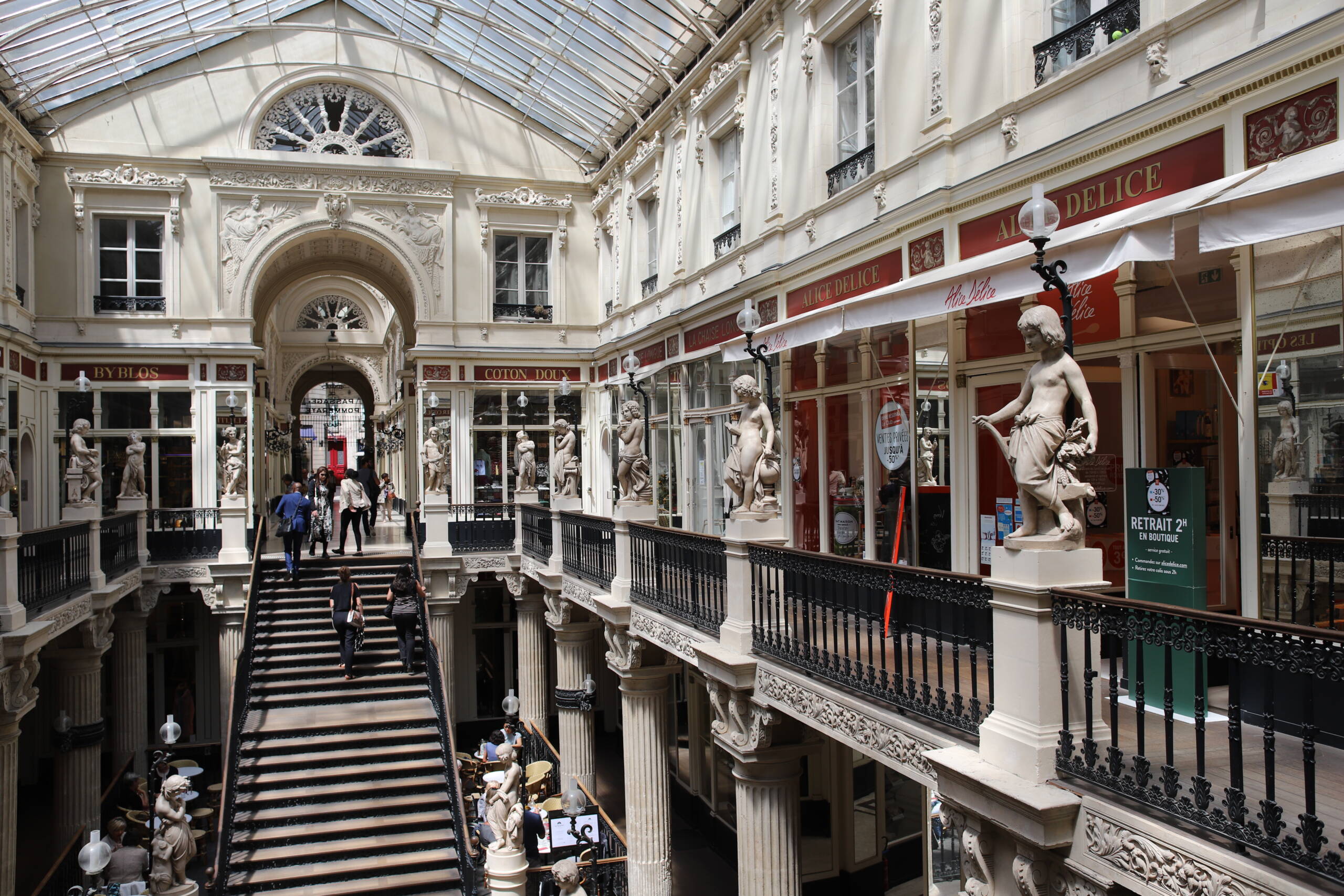There’s a particular kind of elegance in French passages that I can never quite shake off. Maybe it’s the way light moves across glass ceilings like this one, gliding down through cast-iron railings and sculpted figures as if the entire place were staged for a film that never ends. In the photo you shared, the Passage Pommeraye in Nantes shows exactly why these places feel irresistible: a world half-between street and theatre, commerce and quiet dream. The statues lining the upper gallery stand in those frozen, serene poses that always look slightly amused, almost like they’ve seen centuries of human drama pass below—lovers holding hands, hurried professionals, tourists who suddenly walk slower because the beauty forces them to.

I love how the staircase becomes the focal line of movement here. People descend casually, their shadows falling over the worn treads, and there’s that mix of life and architecture where the space isn’t a museum piece—it’s lived in. The shops tucked under ornate carvings have modern signage, yet nothing feels out of place. Instead, the contrast gives the passage its charm: timeless structure, contemporary rhythm. Even the light seems curated. The glass roof diffuses it so gently that the entire interior looks like morning, even when it’s not.
What draws me most to French passages is the idea that they were once visions of the future—19th-century precursors to malls and arcades, symbols of bourgeois leisure, progress, and urban sophistication. But unlike modern shopping centers, these passages were built to be beautiful first and functional second. The craftsmanship wasn’t an afterthought, it was the point. They were spaces where simply being there was part of the pleasure. Still today, you can walk through places like this and feel—strangely and soothingly—that you’ve stepped back into an era that cared deeply about refinement.
Maybe that’s why I keep returning to them, both in real travels and in images like this one. They remind me that cities aren’t only about speed and utility. Sometimes, a passage exists simply to slow you down, surround you with charm, and make you feel that the world, for a moment, is artfully composed.
Leave a Reply